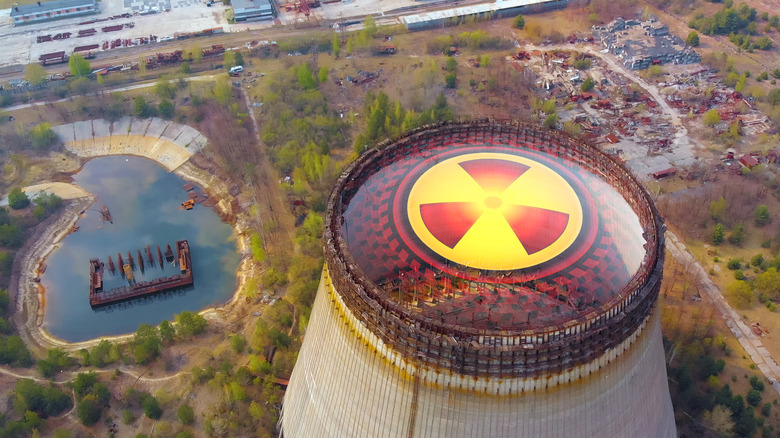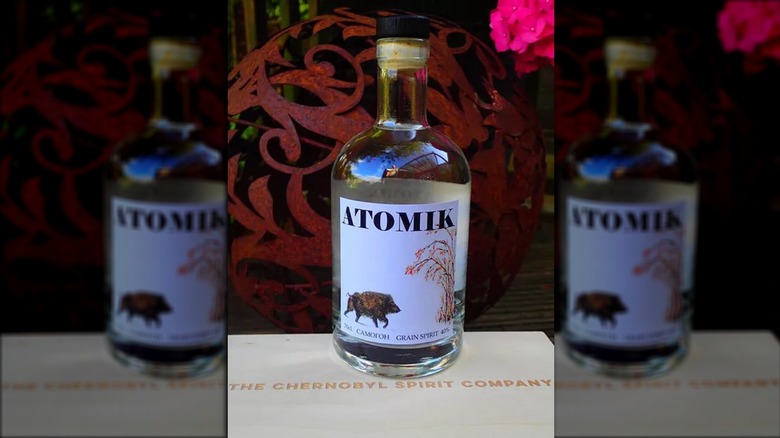The Reason You Can't Drink This Liquor From Chernobyl Is Not What You'd Expect
Remember the Chernobyl disaster? If you're under 40, there's a good chance you don't, unless you happened to catch the HBO mini-series. To make a decades'-long story short, a 1986 explosion at a nuclear power plant in the Ukraine was one of the worst not-natural disasters the world has ever faced. The explosion, which resulted from human error, not only killed dozens of people, but thousands more may have died over the years as a result of cancer caused by the radiation that was released into the atmosphere. Speaking of the atmosphere, the radiation from Chernobyl spread throughout much of Europe, eventually contaminating what World Atlas estimates at over 77,000 square miles of land.
The Chernobyl Exclusion Zone that stretched for 1,000 miles around the power plant was considered to be ground zero, and it may not be entirely safe for thousands of years to come. That being said, however, there has finally been an attempt to market something produced in this area 35 years after the accident took place. According to Food & Wine, the Chernobyl Spirit Company has produced an apple-based vodka called ATOMIK Apple Spirit. While it was expected that at least a few bottles of this unusual liquor would be available for purchase by brave boozehounds in the Ukraine and the U.K., it seems like that's not going to happen. Not a surprise, you may think, but the real shocker is the reason this vodka won't be available has nothing to do with radiation.
Chernobyl's first export since the disaster is tangled up in red tape
According to the Ukrainian and British scientists who have tested ATOMIK Apple Spirit, the distilling process removes a sufficient amount of the radiation from the Chernobyl-grown apples, so as to make the resulting product nearly radiation-free and well within legal limits, per Food & Wine. So why, then, was the first batch of 1,500 bottles meant for export to the U.K. seized by the Ukrainian authorities? Believe it or not, a press release from the The Chernobyl Spirit Company reveals that the Ukrainian government feels that tax laws were violated and claims that the excise stamps needed to export the product were forged.
While this bureaucratic nightmare might seem kind of trivial when you consider all of the other obstacles that must have been surmounted in order to produce ATOMIK, taxation troubles are no small matter (just ask Al Capone). What's more, 75% of the proceeds from the sales of the product were intended to help support the struggling community where jobs have been scarce for the past few decades. As Dr. Gennady Laptev, a Chernobyl "liquidator" who witnessed the 1986 devastation close at hand, says in the press release, "We hope this issue can be resolved so that we can continue our work trying to help people affected by the devastating social and economic impacts Chernobyl had on communities".

